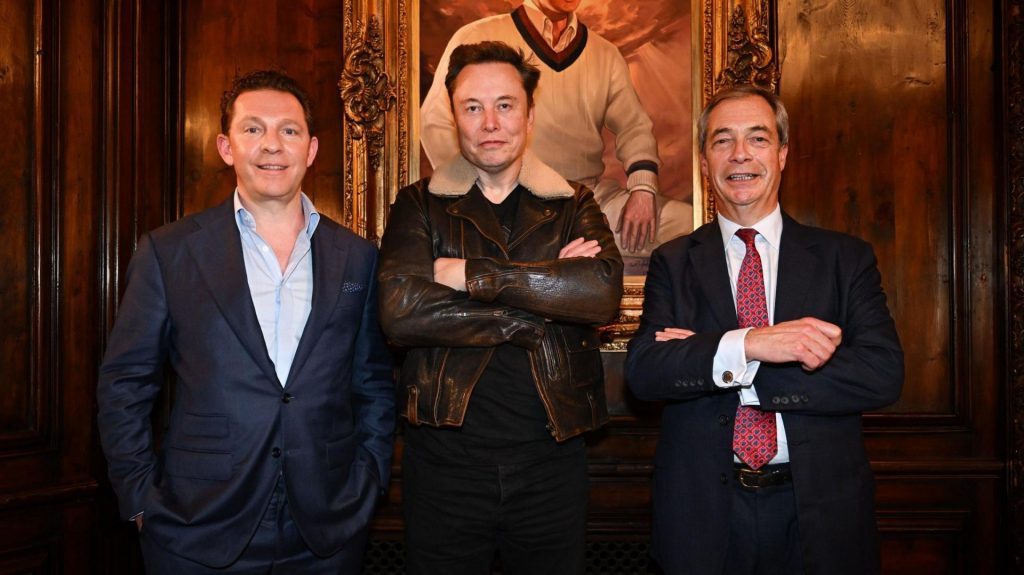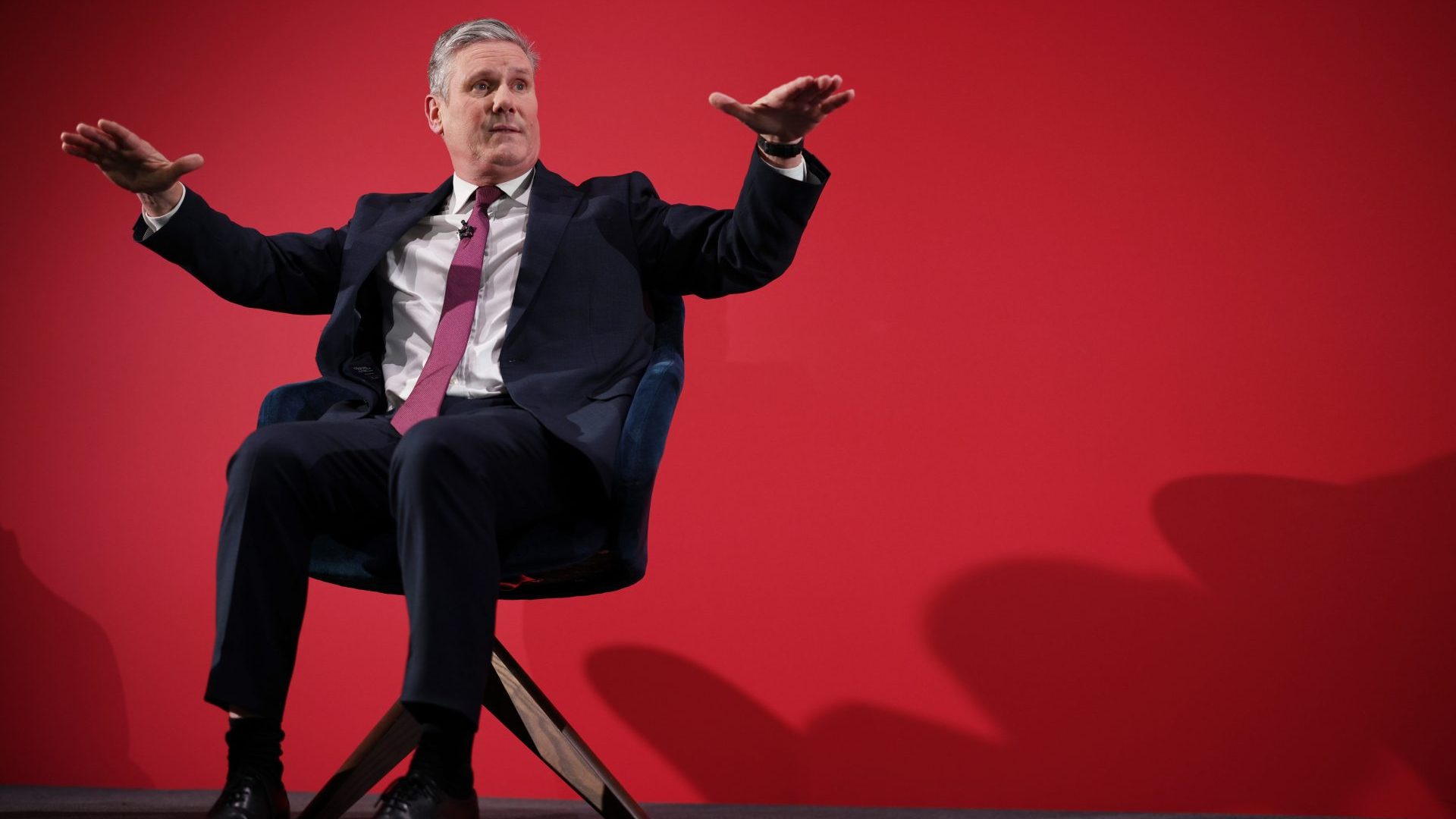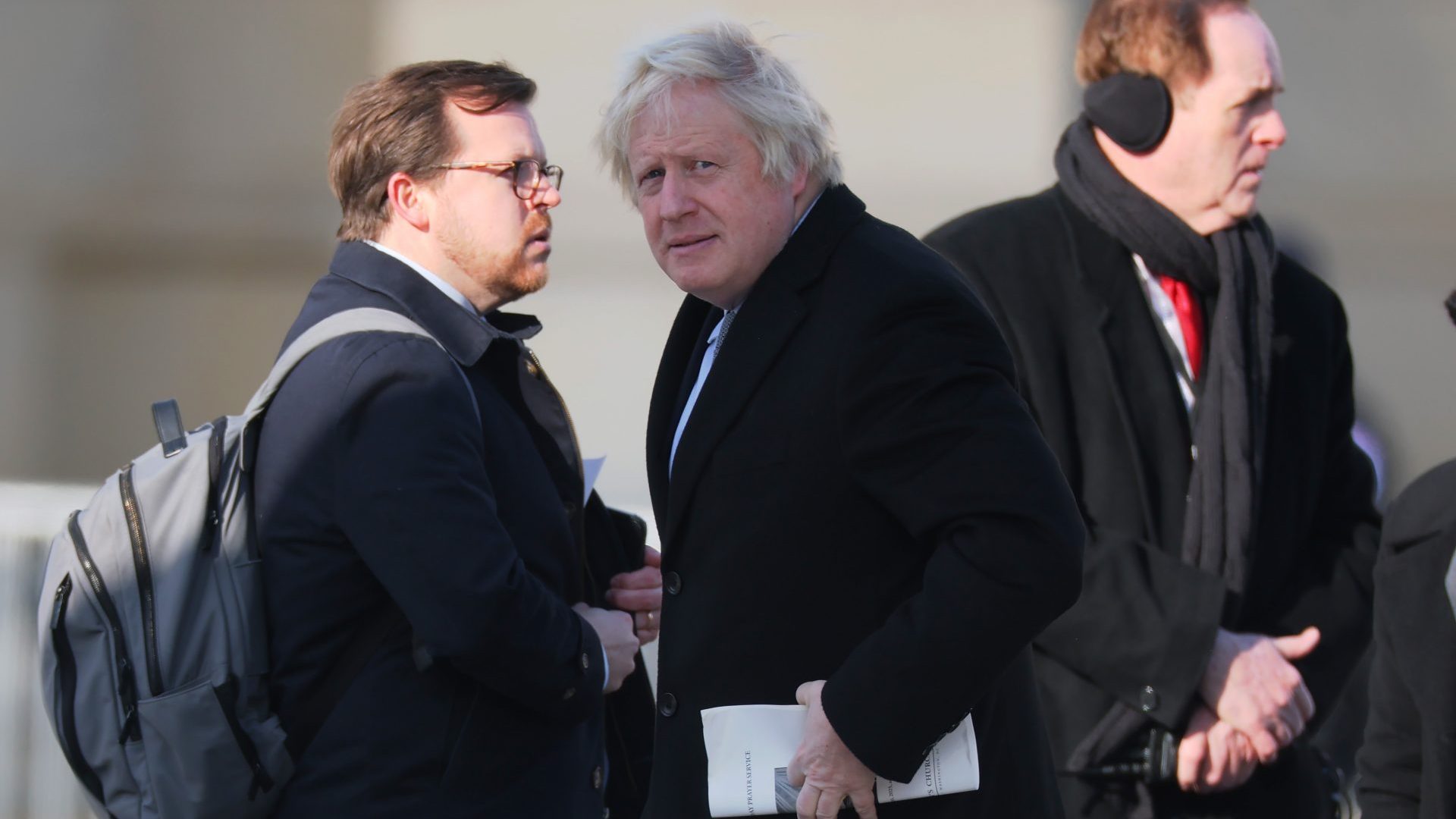Impartiality is good but facts are facts and the right and the centre left are not the same. This time four years ago, when Republican voters were asked whether they thought Joe Biden had won the recent presidential election fairly, only 44% agreed. Democrats were 89% convinced of the fairness of the vote.
This time round Republican approval is up to 94%, while Democrats stand at 73%. Half of all Republicans had changed their minds simply because they won.
The outgoing president Joe Biden and Trump’s defeated opponent Kamala Harris will both attend the re-inauguration of Trump, where he boycotted theirs. Harris presided over the certification of Trump’s election where he incited a mob to try and prevent that of his predecessor. Video from the swearing-in of new members of Congress showed one husband of a Republican victor refusing to shake Harris’s hand.
In the same way, I don’t believe for one minute that a Labour opposition would have called for an inquiry into a scandal (having previously not backed one) on the open prompting of a foreign billionaire. Everything is not everything else.
But the last few weeks have reminded me of something that is all too easily forgotten – which is that the political right easily persuades itself that a centre left government is not just wrong, but fundamentally illegitimate. They don’t really think it should exist.
I first became really aware of this as a pathology when looking at how a section of the US right had reacted to the election of Bill Clinton in 1992. The intervention of a serious third party candidate, Ross Perot, allowed Clinton to win with 43% of the popular vote, ending the long Reaganite reign of Reagan himself and his successor, George Herbert Bush.
The Bushites were calm enough but almost immediately there was a surge in conspiracist accusations aimed at the Clintons; accusations which really took flight six months into the new administration when the deputy legal counsel to the White House, Vince Foster, shot himself in a Washington DC park.
Assisted by some lazy speculation among columnists in the “mainstream media” and the largely chimerical but endless Whitewater affair, a new cottage industry was created around the proposition that the Clintons were some of the worst crooks US politics had ever seen. Indeed, they were Mafiosi responsible for dozens of deaths, including Foster’s.
Lurid stories were catnip to the unregulated and unchecked new news sites on the early internet, some of which morphed into the TV stations that would put pressure on outfits such as Fox News to skew their coverage to cater for a gullible and very right wing audience.
There was a nexus of new media, right wing publishers, far right multi-millionaires and professional grifters whose activities were summed up by a deserter from their ranks, David Brock, in his book Blinded by the Right. It was this network that was described by Hillary Clinton in 1998 when interviewed on NBC’s Today Show in this way:
“The great story here for anybody willing to find it and write about it and explain it is this vast right wing conspiracy that has been conspiring against my husband since the day he announced for president.”
It wasn’t a conspiracy of course because it wasn’t secret. But this delegitimising movement certainly made happy use of conspiracy theories. Hundreds of books, blogsites, radio shows and eventually YouTube channels and podcasts have been devoted to exotica such as the “Clinton Body Count”.
Mainstream Republicans by and large repudiated this kind of accusation, as Senator John McCain did when he slapped down suggestions during his 2008 election campaign against Barack Obama that his opponent was not a proper American. However eight years later the next successful Republican candidate for president, Donald Trump, partly owed his victory in his party’s primaries to his espousal of the “Birther” libel that McCain had angrily rejected.
It was a hop, skip and a jump from this to the accusation about the Biden election being rigged, to the mobilisation of armed militias during Covid – both aimed at denying that a centre left government could possess as much right to rule as a right wing one.
By contrast, after last November’s defeat, very few Democrats indulged in the accusation that Trump’s election was unfair. They began doing what the centre left always does when it is defeated, and entered a period of gloomy and self-lacerating introspection.
That’s America. Here in the UK there had been the talk of an anti-Labour, anti trade union “coup” in the mid 1970s, but the nearest we had come to such an underlying assumption of illegitimacy was at the height of the Thatcher government and its “enemy within” period. The strident denunciation in a large section of the press of the morals, patriotism and basic decency of the Labour opposition made many of us who weren’t Thatcherites feel not just that we were disagreed with, but that our opinions were somehow un-British. That was the nearest – until now.
The relative success of Reform UK at the expense of the Conservatives last July has entirely eclipsed the gains of the Liberal Democrats and the Greens to create an atmosphere in which the public agenda – largely set by the media – has been dominated by questions formally to do with migration but actually concerned with ethnicity and religion. Trump’s triumph two months ago has given this fixation a further twist, creating neural pathways concerning the advance of the radical right in all of us. We don’t seem to be able to look away. It has become the only show in town.
In reality – when it comes to the lives of Britons – these questions are secondary. The rise in borrowing costs and the speculation that this might require the chancellor to seek cuts in public expenditure should be a reminder of the poisoned field that Labour inherited six months ago. It should also remind us of the price of Starmer and Reeves ruling out tax increases in the form of employees’ national insurance contributions before the election. One consequence has been a series of squeaky-wheel initiatives as the chancellor has sought to find money from winter fuel payments, inheritance tax on land and VAT on private school fees.
Losers are loud, winners (such as doctors and those on the increased minimum wage) are always very quiet. It should be more remarked upon than it is that Labour’s opponents, left and right, are generally against any new imposts whatsoever but also critical of anything that looks like a cut. Would the Liberal Democrats and Greens really have shelled out the billions needed to placate the entirely undeserving WASPI women? Did anyone ask?
Unfortunately, Labour’s all-important long term growth agenda appears opaque (as long-term agendas often will) even to those taking notice of it, in a way that, say, an 86-year-old dying after four days on a hospital trolley does not. The government’s path is strewn with the landmines laid by its predecessor in the form of untackled problems, from the crisis in special needs education, via the prisons to social care.
No democratic government transforms a country within weeks of assuming office – we live under the conditions set by the old regime. Labour didn’t take us out of the EU with no idea what to put in its place, it didn’t elect Liz “I’ll sue you if you say I crashed the economy” Truss, but it has inherited the consequences. If ever a government deserved a period of sceptical but constructive patience from its critics and opponents (let alone its more skittish supporters), then this one does.
Instead, it has faced an assault on its right to govern at all. In August, barely a month into the new government, the Southport murders were the excuse used to justify anti-Muslim and anti-migrant violence in a score of cities and towns, a violence fed by online incitement – the cyber made real. The government’s toughness, mirroring that of the authorities in the wake of the 2011 riots, was necessary and should have enjoyed the support of democratic politicians of all stripes.
In fact it was used by some on the right as a launchpad for an assault on the popular credentials of the new government, with the accusation that Labour is the party of the minorities, operating a “two-tier” value system in which the majority is the subject of discrimination. From his sleepless eyrie in Texas the world’s richest man used his personal platform to predict civil war in Britain, blaming a government that had been in office for a matter of weeks.
In a recent Financial Times story about Elon Musk’s desire to intervene directly in British politics, it reported that the billionaire “has privately discussed with allies how Sir Keir Starmer could be removed as UK prime minister before the next general election, according to people briefed on the matter… (Musk) is probing how he and his right wing allies can destabilise the UK Labour government beyond the aggressive posts he has issued on his social media platform X, the people said.
“‘His view is that western civilisation itself is threatened,’ one of the people added. Musk has sought information about whether it might be possible to build support for alternative British political movements – notably the right wing populist Reform UK party – to force a change of prime minister before the next election, according to associates.”
There was a frustrating absence of named sources in this piece but the FT is generally reliable and besides the story makes sense in the context both of what Musk has said and the way he now seems to operate. His motivation for getting involved in British affairs, he claimed, was that his beloved Liverpool-born strict-but-fair granny could herself have been a victim of the grooming gangs that rampaged through the nation, had there been any at the time. She escaped such a prospect for her future daughters by emigrating to South Africa, where she does not seem to have become a stalwart in the fight against apartheid.

What is obvious is that Musk does not accept the legitimacy of the British government, and neither (it now seems) does a significant section of the political right or the right wing press – still the dominant influence in print in this country. When asked, in effect, to choose between the fabrications and insults reproduced and amplified by transatlantic social media on the one hand and the democratically elected government on the other, editors at the Telegraph, Mail, GB News, Talk TV and even, to a lesser extent, the Times, have sided with the former.
Part of this is a matter of natural self-interest. I would doubt that the editors and owners of these platforms and papers have ever sent their children to state schools, that they ever avail themselves of the NHS except in extremis, or that anyone in their families stands to benefit from an increase in the minimum wage.
If they don’t own yachts, they still get invited on them, if their estates don’t include grouse moors they will still have found themselves, shotgun in unconfident hand, murdering the birds raised for the purpose by Lord Banker, or Sir Hedge-fund Tycoon. I am not exaggerating.
To this class, Keir Starmer is an abomination. For them, everything about him is mean and diminishing.
He is the lawyer who wants to give away islands we had forgotten we even had, merely because international courts over the years have ruled consistently that we should. He is the man who – like modern universities – has discriminated against their progeny by appointing state educated ministers to his cabinet. He is the man who made that unshowy Muslim Sadiq Khan a knight.
He is a walking reproach to the old elite, which reaches out to the workers for its salvation. And it finds, as its most potent tool to make a connection, the issue which the far right has been attempting to make central to British politics for two decades – the grooming gangs.
The story of male British citizens of Pakistani origin being the principal predators of often troubled and isolated girls and young women in several dozen towns and cities should have been well known by now. It leached into journalistic consciousness over 20 years ago, broke as a national scandal in 2012, was the subject of numerous subsequent local inquiries, resulted in dozens of prosecutions and lengthy prison sentences and had a section to itself in the child abuse inquiry which reported in 2022.
From 2012 onwards, two factors were held mostly to blame for the fact that such widespread abuse had been allowed to take place. The first was a cowardly squeamishness on the part of the authorities in identifying the abuse with a particular ethnic group. The second was the lack of proper care for a category of teenage girls and young women, often in care and often alienated, who were written off as wayward and too difficult to manage.
It is notable in this new phase of debate on the grooming gangs that this second factor has been entirely absent. Politicians and commentators who suddenly care about this issue seem only to want to talk about one element of it.
In the course of calling for a new national inquiry, when most of the recommendations of the last one have not been implemented, critics of the government raised what Trotsky would have called a “transitional demand” – a demand they knew could not be met and whose refusal would act as a political catalyst. Those making the demand have been either entirely ignorant or entirely cynical.
Worse, though, has been the way established politicians and commentators of the right have been prepared to tolerate or even praise the interventions of Musk and others, even when many of these have been couched in language that is inciting, or have involved straightforward misinformation.
And for what? Not because they felt for the victims past or present, otherwise the record of the last 13 years would be full of their agonising. It just isn’t. The Today interview with shadow minister Robert Jenrick showed just how little interest he had shown in the scandal until he realised that anti-immigrant sentiment might do for his career what Brexit did for Boris Johnson’s.
An election billboard for the hard right AfD party in Germany notoriously depicted brown men defiling Aryan maidens; a poster which had it been about Jews would doubtless have resulted in prosecution. This is the AfD for which Elon Musk has expressed his support and whose rallies Nigel Farage has attended. This is the AfD whose success at February’s national election in Germany will doubtless be held up as a qualified lesson to Conservatives in Britain by commentators in the right wing media: get with the anti-migrant moment or get rolled over by the far right. Hoorah for the Blackshirts (even if those garments are worn beneath a classic from Turnbull and Asser).
Polls show that Britons don’t like Musk much more than they like Trump, which isn’t much. But they also saw how migration has increased as an issue of concern since the election, and it’s these fears that are being stoked by the political drug pushers of the New Right and their temporary allies in the old elite. Ask moderate Republicans how that one turns out.
And that’s the plot against Britannia. Except it isn’t a plot; it’s out there in plain view. The question is, what are we liberals going to do about it? Blame ourselves probably. It’s what we do best.
David Aaronovitch’s substack, Notes from the Underground, is available to read here




